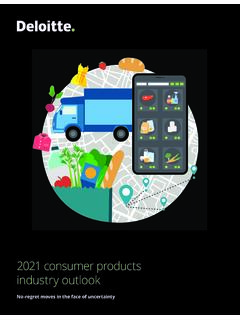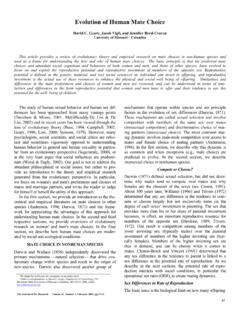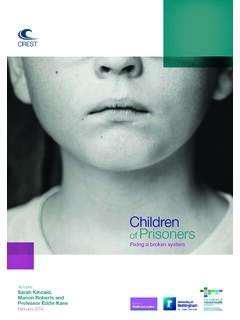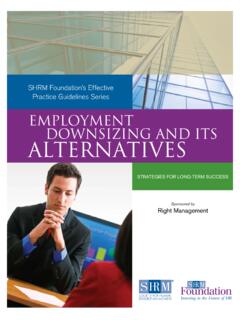Transcription of Behaviour Change and Energy Use - GOV.UK
1 Behaviour Change and Energy UseBehavioural Insights TeamContentsMinisterial summary ..5 Introduction ..61. Helping people to green their homes and be more Energy efficient ..9A. Encouraging uptake of the Green Deal ..10B. Increasing the uptake of renewable Energy generation ..152. Helping people to reduce Energy consumption through better information ..18A. Comparative Energy consumption ..19B. Reforming Energy Performance Certificates ..213. Government and businesses leading by example ..27A. Reducing departments emissions by 10% over one year and by 25% by 2015 ..28B. Working with others to achieve Change ..30 Conclusion ..31 References ..32 This paper draws on evidence from behavioural economics and psychology to outline a new approach to enabling people, at home and at work, to reduce their Energy consumption and reduce their bills in the insights are not alternatives to existing policy.
2 They complement the Government s objective to reduce carbon emissions across all sectors, and show how we can support these efforts in relatively low-cost based changes that reduce emissions have major advantages. First, the benefits can be very fast, unlike major infrastructure changes that can take years, or even decades a 1% gain today is worth more than a 1% gain tomorrow. Second, they can be highly cost-effective. Third, they can provide savings and other benefits directly to paper demonstrates how government is working with the commercial sector and with local authorities to test the application of behavioural insights to public policy in order to see how we can encourage the uptake of Energy efficiency products by thinking about how people respond to the incentives that they are given either as individuals or communities. Other insights tell us that we can reduce carbon emissions by informing people about what other people living in similar households are doing to manage their own emissions, or how much money they may be wasting by being relatively Energy inefficient.
3 Ministerial ForewordOliver LetwinMinister of State, Cabinet OfficeGregory BarkerMinister of State, Department of Energy and Climate ChangeAndrew Stunell OBEP arliamentary Under-Secretary of State, Department for Communities and Local GovernmentBehaviour Change and Energy Use4 But this paper is not just about encouraging people in domestic settings to do all the hard work. It also shows what the Government has already done to reduce the emissions of central government departments. We have managed to reduce emissions by over 10% in just one year, including by applying insights from behavioural economics to departmental policy on how to heat and light our buildings. We have set a new target of 25% by 2015. In the long term, these changes will save the public sector millions of pounds a s own endeavours are part of a wider national movement around saving Energy and reducing carbon emissions. We want other organisations to join us in these efforts to cut emissions and bills, so we are launching a green Responsibility Deal to help companies to reduce their emissions further.
4 The behavioural insights at the heart of this paper are, we believe, just the start of a new approach to thinking about and understanding the way in which we might conduct public policy in the future. Applying behavioural insights in this way will ultimately become an additional, important way of achieving our policy Letwin, Minister of State, Cabinet OfficeGregory Barker, Minister of State, Department of Energy and Climate ChangeAndrew Stunell OBE, Parliamentary Under-Secretary of State, Department for Communities and Local GovernmentThis paper shows how government can make it easier for people to use Energy more efficiently. It sets out a range of trials to test different ways of applying behavioural insights to overcome barriers to being more Energy efficient. This research will help to ensure that government policy on Energy efficiency will be as effective as possible in motivating behavioural Change .
5 Chapter 1 sets out how we can encourage people to green their homes and be more Energy efficient. It puts in place four large-scale field trials to test the efficacy of different ways of encouraging the uptake of Energy efficiency products. These trials have been developed in partnership with local authorities and businesses, and include: a trial to test the impact of offering upfront incentives to encourage the uptake of Energy efficiency products (for example a month s council tax holiday); and trials that test the impact of offering community rewards and discounts for people who agree to collectively purchase Energy efficiency products (for example 25% discount for five households). Chapter 2 focuses on how we can use information more effectively to encourage people to be more Energy efficient. In particular, it explores how we can draw upon the fact that people are influenced by what those around them are doing (social norms), and are more likely to be influenced by information which is novel, accessible and of relevance to the individual in question.
6 Two main areas are explored. These are: a trial which examines how behavioural feedback, including comparisons of how much Energy you are using compared with a similar person, can help consumers to save Energy . Similar trials in the US have shown consistently positive results; and reforming the front page of Energy Performance Certificates (EPCs), which provide information for those buying or renting a home. From 2012, these will be made much clearer, and will provide an estimate of the costs of heating a 3 demonstrates how the Government has already done a great deal to achieve Energy efficiency savings of its own. The Government set itself a target to reduce emissions from departments by 10% in just one year. The application of behavioural insights has helped the Government to surpass this objective, for example through changes to the default settings of heating and lighting systems. Building on this progress, we will seek to reduce emissions by 25% by 2015.
7 This chapter also recognises the work done by UK businesses, non-governmental organisations and other organisations, and sets out a new Responsibility Deal, whose aim is to encourage organisations to make public commitments to reduce Energy use. Taken together, these trials and reforms show how the Government is drawing on new evidence to encourage positive behaviours in ways that do not require a new legislative initiative or spending programme. We will evaluate their impact, and ensure that lessons learnt inform future summaryIntroductionThis paper shows how government can make it easier for people to use Energy more efficiently. It is not a traditional government document. It does not consider what new laws or regulations might be needed, and it does not announce a new spending programme. Rather, this document focuses on the ways in which individuals respond to everyday situations and can be encouraged to waste less Energy by being more Energy efficient.
8 It does so by drawing upon a range of insights from behavioural economics and psychology , all of which are grounded in a growing body of academic evidence. This evidence shows that the behaviours of individuals can deviate greatly from a standard rational choice model,1 in which people objectively weigh up the costs and benefits of investing time and money into greening their homes and being more Energy efficient. Research indicates that social, cognitive and behavioural factors are important in explaining why many people have not yet introduced changes that could help them to enjoy cosier homes and lower Energy bills. For example: Although many people are concerned about the environment (a stated preference), this does not always translate into taking practical steps to reduce domestic Energy consumption (revealed preferences).2 Although many Energy efficiency measures have been proven to be highly cost-effective (for example insulating a loft or putting in place cavity wall insulation), and therefore a rational thing to do, many people are yet to introduce them.
9 This paper seeks to address many of these discrepancies through a more nuanced understanding of how people behave in their everyday lives. Three of the most significant insights relate to (i) our tendency to discount the future ; (ii) the power of social norms; and (iii) the use of defaults: 1. Discounting the future. One of the barriers to making Energy efficiency improvements relates to the fact that the benefits are accrued over a long period of time, whereas the costs associated with them are immediate and sometimes large. We know that people often have a tendency to discount the future in other words, they may prefer a smaller reward today over a larger reward in the future. So, many of the new approaches outlined in this paper will seek to reward individuals for taking concerted action now which will help them to achieve Energy savings in the longer term. 2. Social norms. Behavioural insights tell us that people are heavily influenced by what others around them are doing.
10 This paper explores how social norms can encourage the adoption of green behaviours. We are introducing new trials and policy changes that will show how we can encourage people to reduce their Energy use by providing them with comparative Energy consumption information. And we will be offering rewards to communities and groups, as well as to individuals, to test whether we can encourage the diffusion of norms through existing social networks. 3. Defaults. One important lesson from behavioural economics is that individuals tend to go with the flow of pre-set options, or defaults, often regardless of whether the pre-set options maximise our individual or collective wellbeing. Some of the most successful interventions that supported the achievement of the Government s 10% reduction in departments carbon emissions focused on changing these defaults such as when heating and cooling systems were turned on and off through the identification of optimal core hours windows.

















